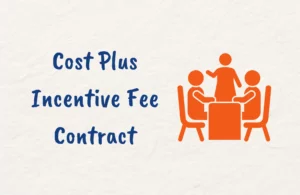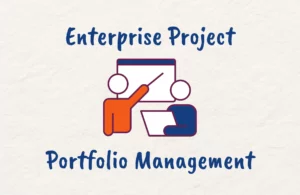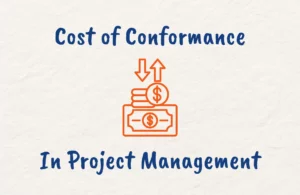The project manager is the most popular role in project management. However, there are other roles in the background that happen to be also key to the success of the project. The project coordinator role is one of these roles.
The project manager and project coordinator roles while related happen to have different and distinct responsibilities and require different skills. Despite this, there exists a relationship between them that produces synergy for project management.
This article is a project coordinator vs project manager drill-down comparison to produce clarity on how they differ, the responsibilities of the individual roles, and how they collaborate in project management.
Project Coordinator vs Project Manager: Overview
Project Coordinator Roles and Responsibilities
A project coordinator is a crucial part of a project management team who is responsible for coordinating activities, resources, equipment, and information. They work under a project manager and often assist in multiple project management tasks simultaneously.
Key Responsibilities of a project coordinator include:
- Planning and Coordination: They prepare comprehensive action plans, including resources, timeframes, and budgets for projects. They also coordinate project management activities, resources, equipment, and information.
- Administrative Tasks: They carry out necessary administrative duties, such as documentation, reporting, and handling queries about the project.
- Liaison: They act as the point of contact and communicate project status to all participants, both internal team members and external clients or stakeholders.
- Risk Management: They help identify potential project risks and bottlenecks, and work with the project manager to develop solutions or contingency plans.
- Meeting Coordination: They schedule and coordinate meetings, and sometimes, they’re also responsible for taking minutes and follow-up actions.
- Task Tracking: They track project progress and handle any issues that arise.
Project Manager Roles and Responsibilities
A project manager is a professional in the field of project management responsible for the planning, execution, monitoring, control, and closure of a project. This role involves the use of specific knowledge, skills, tools, and techniques to successfully manage the entire project lifecycle.
Key Responsibilities of a project manager include:
- Project Planning: They define the project scope, develop the project plan, and ensure necessary resources are available.
- Execution: They execute the project according to the plan, allocating tasks to team members, and managing resources to ensure the project is on track.
- Monitoring and Control: They constantly monitor project progress, track performance, and make adjustments as necessary to ensure the project stays on schedule and within budget.
- Risk Management: They identify potential risks and issues and develop mitigation or contingency plans.
- Stakeholder Management: They manage the expectations of all stakeholders, maintain open lines of communication, and ensure stakeholders are updated on project progress.
- Project Closure: They close the project, ensuring all objectives have been met, all deliverables have been handed over, and a final report is prepared.

Project Coordinator Key Skills
To be a successful project coordinator requires having a set of skills that will help keep track of project timelines and tasks, communicate with the project team and stakeholders, and assist with budget and resource management.
These skills include:
1. Strong Organizational Skills
One of the most important skills a project coordinator needs to have is strong organizational skills. This includes being able to create and maintain project schedules, identify potential delays, and ensure that tasks are completed on time.
2. Communication Skills
Project coordinators must have strong communication skills to be able to communicate effectively with the project team, stakeholders, and other departments within the organization.
They also need to be able to explain technical information in a way that is easy for others to understand.
3. Multitasking and Attention to Detail
Project coordinators need to be able to multitask and pay attention to detail as they’ll often juggle multiple tasks and deadlines at once, and need to be able to switch between tasks seamlessly and efficiently.
4. Time Management
Project coordinators need to be able to manage their time effectively. They need to be able to prioritize tasks and meet deadlines, in order to ensure that the project is completed on time.
5. Problem-Solving
Project coordinators need to have strong problem-solving skills. They’ll often encounter unexpected issues and need to come up with creative solutions to address them.
6. Budget Management
Project coordinators assist the project manager with budget management, so they need to have a good understanding of financial management principles and be able to track expenses and monitor project costs.
7. Strong Technical Skills
Project coordinators often need to understand the technical details of the project. This knowledge is key in enabling communication with the project team and identifying potential issues.
8. Leadership
Project coordinators may lead small teams or work closely with the project manager, so they need to have leadership skills such as the ability to motivate and guide the project team.
9. Interpersonal Skills
Project coordinators work with diverse groups of people, so they need to have strong interpersonal skills.
Being able to build and maintain relationships with team members, stakeholders, and other departments is essential.
10. Adaptability
Project coordinators need to be able to adapt to changing circumstances. Projects often have unexpected twists and turns, and the ability to adapt to these changes is critical to project success.

Project Manager Key Skills
To be a good project manager requires certain key skills. These include:
1. Leadership
A project manager is the leader of the project team and must have the ability to inspire and guide team members to achieve the project’s goals.
2. Strategic Planning
Project managers must have the ability to think ahead and plan strategically for the project’s success.
This includes creating a project plan, setting goals, and identifying potential risks.
3. Communication
Excellent communication skills are a must for a project manager.
They must be able to clearly convey project objectives, timelines, and progress to stakeholders, team members, and other departments.
4. Problem-Solving
Project managers must be able to identify and solve problems quickly and effectively to keep the project on track.
5. Budget Management
Project managers are responsible for managing the project budget and need to have strong financial management skills.
6. Time Management
Effective time management skills are essential for a project manager to meet project deadlines and deliver results on time.
7. Decision Making
Project managers must be able to make well-informed and timely decisions that will have a positive impact on the project’s outcome.
8. Technical Knowledge
Having a good understanding of the technical aspects of the project can help project managers to communicate effectively with the project team and identify potential issues.
9. Adaptability
Project managers must be able to adapt to changes and handle unexpected challenges that arise during a project.
10. Team Building
Project managers must have the ability to build and lead a high-performing team, by motivating and mentoring team members, and providing feedback and recognition.

Project Coordinator vs Project Manager: Differences
With an insight into the roles, responsibilities, and skills of project coordinators and project managers, let’s compare these roles and see the distinct differences between them.
1. Responsibilities
Project coordinators assist the project manager in keeping track of project timelines and tasks, communicating with the project team and stakeholders, and assisting with budget and resource management.
On the other hand, project managers are responsible for leading the project team, making decisions and solving problems, and managing the project budget and resources.
2. Decision-Making
When it comes to making decisions, project coordinators take direction and make decisions based on the instructions provided by the project manager.
Project managers, on the other hand, are responsible for making important decisions that will benefit the project in the long run.
3. Leadership
Project coordinators may lead small teams or work closely with the project manager, but their main responsibility is to assist the project manager.
Project managers, on the other hand, are responsible for leading the project team, providing guidance, and making decisions.
4. Skillset
Project coordinators need to have strong organizational, communication, multitasking, attention to detail, problem-solving, budget management, technical, leadership, interpersonal, and adaptability skills.
Project managers, on the other hand, need to have strong leadership, strategic thinking, budget management, communication, time management, problem-solving, risk management, technical, interpersonal, and adaptability skills.
5. Scope of Work
Project coordinators typically focus on the day-to-day tasks and operations of a project. Project managers have a broader scope of work, including overall project planning, execution, and monitoring, and ensuring that the project meets its objectives and deliverables.
6. Level of Authority
Project coordinators typically have less authority and decision-making power compared to project managers.
Project managers have the final say on important decisions that are related to managing the project and are responsible for leading the project team.
7. Reporting Structure
Project coordinators typically report to the project manager, while project managers often report to higher-level management or stakeholders.
8. Career Progression
Project coordinators may progress to become project managers with the right experience, skills, and qualifications.
Project managers, on the other hand, may progress to higher-level management positions such as program manager or portfolio manager.
Project Coordinator vs Project Manager Salary
Project Managers typically earn higher salaries than Project Coordinators, reflecting the greater level of responsibility and expertise required for the role.
According to Indeed, the average salary for a Project Coordinator in the United States is approximately $54,694 per year. Entry-level salaries start around $52,810, while experienced coordinators can earn up to $64,582 or more.
On the other hand, the average salary for a Project Manager in the United States, according to Indeed, is approximately $86.843 per year. Entry-level salaries start around $84,125, while experienced managers can earn over $90,351 per year.
How to Become a Project Coordinator
To become a project coordinator, here are general steps you can take. These steps are however a general guide and the path can vary based on the industry, company, and individual career goals.
- Education: While it’s possible to enter the field with only a high school diploma and extensive work experience, most Project Coordinators hold at least a bachelor’s degree. Relevant fields of study include business administration, project management, or a related field.
- Gain Experience: Start gaining relevant experience in a business or project environment. This might involve working in an administrative or assistant role, where you can begin to learn about project management practices and methodologies.
- Develop Relevant Skills: Good organizational, communication, and problem-solving skills are essential for a Project Coordinator. Strong computer skills, particularly in Microsoft Office and project management software, are also beneficial.
- Certifications: Consider obtaining a certification in project management or a related field. Certifications are not always required, but they can demonstrate your knowledge and commitment to the field. The Certified Associate in Project Management (CAPM) from the Project Management Institute (PMI) is a popular choice for those starting in the field.
- Apply for Project Coordinator Roles: Once you have gained some experience and perhaps earned a certification, you can start applying for Project Coordinator roles.
- Continuous Learning: Project management is a dynamic field. Stay updated with the latest tools, technologies, and best practices by attending workshops, webinars, and conferences. Joining professional organizations, such as the Project Management Institute (PMI), can also provide networking opportunities and access to valuable resources.

Transitioning from Project Coordinator to Project Manager
For a lot of people starting out in project management, the project coordinator role is often their entry-level position. For those interested in advancing their careers, a transition to project manager is a viable option.
While the transition may be challenging, with the right experience, skills, and qualifications, it’s possible. These are steps that can be taken to make it work.
1. Acquiring Project Management Skills
Project coordinators can acquire project management skills through on-the-job training, attending workshops and seminars, and pursuing formal education in project management.
It’s important for project coordinators to understand project management methodologies, tools, and techniques, and how to apply them in real-world projects.
2. Building a Strong Network
Building a strong professional network can help project coordinators learn from experienced project managers, gain exposure to different types of projects, and find opportunities for advancement.
It’s important for project coordinators to actively seek out mentorship opportunities and actively engage with the project management community.
3. Gaining Experience
Gaining experience in leading small teams or sub-teams, and taking on more responsibilities within a project can help project coordinators demonstrate their capabilities and readiness to take on a project manager role.
4, Earning a Project Management Certification
Earning project management certifications such as the Project Management Professional (PMP) or PRINCE2 (PRojects IN Controlled Environments) can also demonstrate to employers that a project coordinator has the knowledge and skills required to manage projects successfully.
Conclusion
In summary, if you want to start a career in project management, a project coordinator is an entry-level role that builds expertise and experience working in project environments.
This role works with the project manager to use project management skills and techniques to manage resources in order to successfully manage projects and meet goals. Each role has its individual responsibilities and required skills but work together to manage projects.
FAQs
Who is higher Project Manager or Coordinator?
In the project management hierarchy, a Project Manager is higher than a Project Coordinator. The Project Manager has overall responsibility, while the Coordinator assists with specific tasks.
Does Project Coordinator lead to Project Manager?
Yes, the role of a Project Coordinator often serves as a stepping stone to becoming a Project Manager. The experience and skills gained as a Coordinator can prepare individuals for the larger responsibilities of project management.





